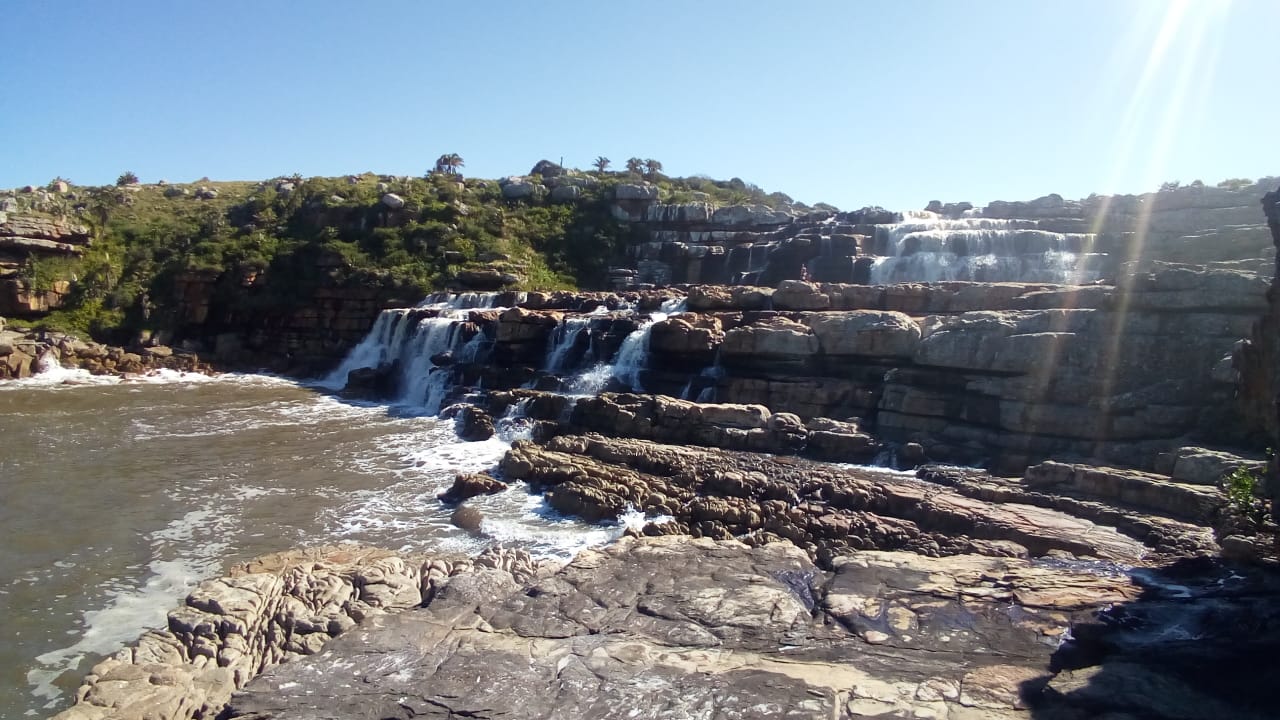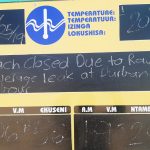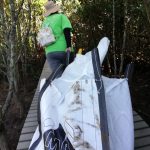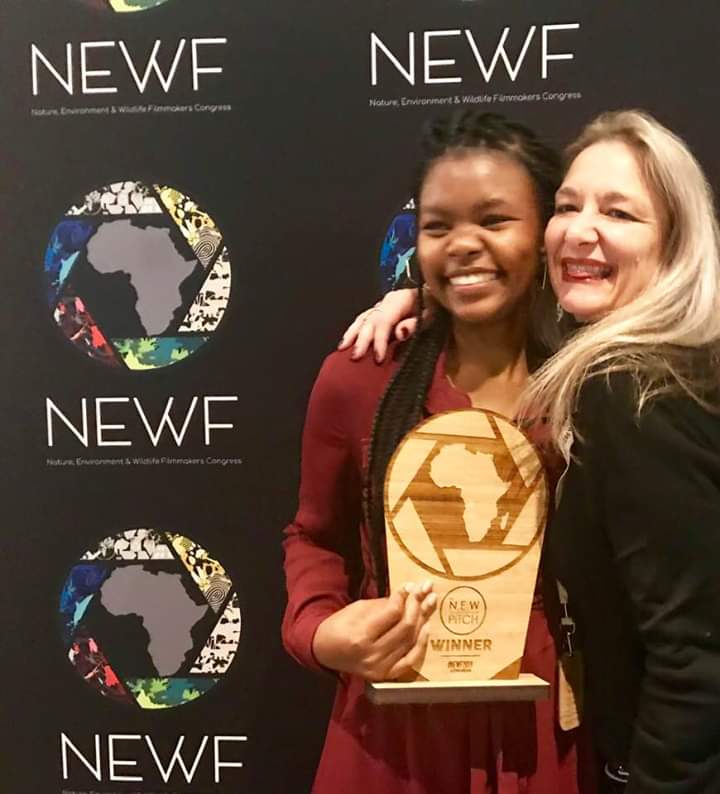Mother Nature put the brakes on a daring wild coast swim, but a seed has been planted for a new environmental education initiative – and a chance to make media magic. Craig Bishop reports
Amid habitat loss and severe climate change, a unique concept to develop environmental watchdogs for the future has emerged on South Africa’s wild coast.
Young environmental scientists and marine biologists will soon pack their laptops and don hiking boots to explore a 22 km stretch of the coast earmarked for mining by the Australian outfit, Mineral Resource Commodities (MRC).
They will be accompanied by locally trained guides from Pondoland and take part in educational ‘boot camps’ organised by the environmental journalism training agency, Roving Reporters, Sustaining the Wild Coast and other environmental NGOs.
Besides documenting the 12-year struggle against the Xolobeni Minerals Sands project, Roving Reporters will also cover health and education issues in the area, and monitor government service delivery.

The initiative, Developing Environmental Watchdogs, arises from Roving Reporters’ recent Wild Swim expedition. Assisted by the 8 Mile Club, Sustaining the Wild Coast and Africa!Ignite, a dozen ocean adventurers gathered on the eve of South Africa’s sixth democratic elections to swim a 22 km stretch of the coast to raise funds for eco-tourism and marine conservation in the area.
United
United by the view that people living in the area should have the rights to decide what happens to the land they live on, the Wild Swim set out to promote alternatives to mining.
A comprehensive safety plan was in place, including safety divers and kayakers, a jet ski rescue operator, support boats, paramedics and a team doctor. But torrential floods put paid to all this. With rivers spilling their guts into the sea, the safety team declared it unsafe for anyone to venture into muddy and turbid waters – ideal feeding grounds for the much-feared bull shark.

With the swim postponed, the Wild Swimmers set out on foot.
Over the next five days they immersed themselves in the community, crisscrossing the five proposed mining blocks of Xolobeni Mineral Sands Project. They surveyed flood ravaged and flotsam-laden beaches and explored the estuaries of the Pondoland Marine Protected Area.

They discovered that aside from damage to unserviced and almost non-existent roads, the floods had wreaked minimal impact on the pristine landscape.
Villagers also opened their hearts and their homes to the team each night, providing hearty suppers and breakfasts, and a chance to chat intimately about their lives and the plight of the people who could face removal from the land to make way for mining.
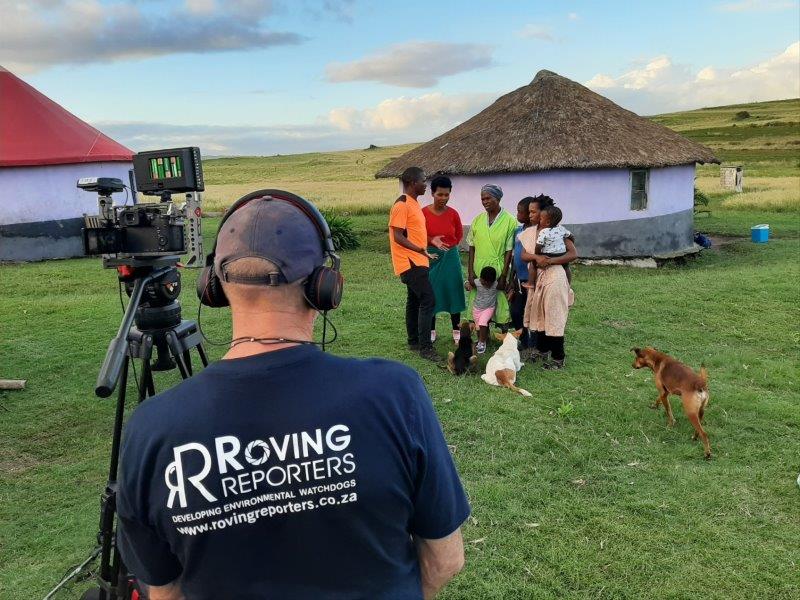
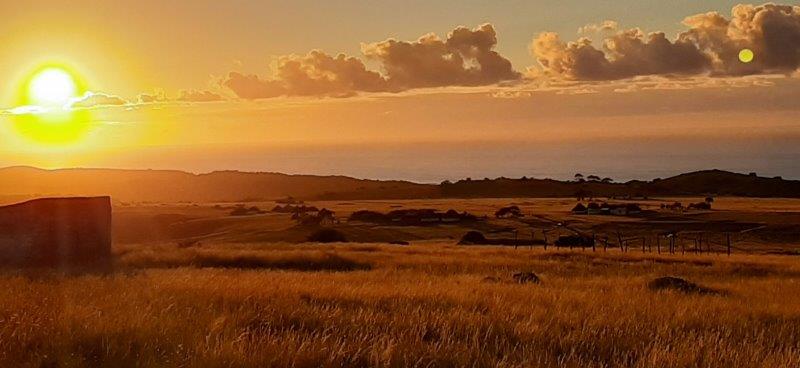
“When outsiders come here, we tell them two things,” said hiking guide, Siyabonga Ndovela. “We say that, yes, the sand is red because of geography, because of the minerals. Iron maybe, or titanium? But in our hearts, it is red because of the blood spilt by our forefathers fighting for this land. Our forefathers never went to school like we do, so all they have to give us, their children, is this land. We can never give up this land.”
Knowing the swimmers were still hungry for adventure, Ndovela led them down steep gorges and ravines to places few people have visited.
This included the foot of Mnyameni falls in full flood. Amid the churning waters and smoking and stinging spray, the team enjoyed a wilder swim than any had anticipated. Then, on the last evening, an end-of-hike bathe in crystal, clear waters that cascade down huge cliffs into the Mtentu estuary.

That night, amid aching limbs, swollen feet, stubbed toes, cuts, bruises and scratches, the travellers revelled in an unbridled sense of awakening. Not even the pain of a dislocated shoulder from a kayak carrying episode down the steep Mtamvuna gorge, could subdue the shared exuberance.
Awakening
“An almighty seed had been planted in all our minds, but we did not know what to with it,” recalled lead safety diver, Cera-Jane Catton.
“It was a moment of discovery,” said veteran journalist Mike Loewe. “We had rumbled through flooded, muddy, sparkling land, river and seascape. Yes, it was a happy adventure, but we also picked up the underlying story of jobs and mining, and conflict and tensions, large and small.”
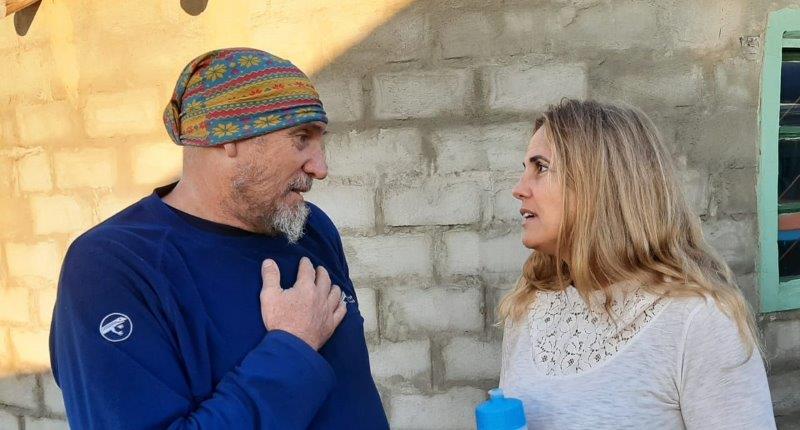
Travel, a metaphor for leaving the unknown and comfortable, had brought together a team of modern day explorers, and what a diverse and interesting bunch they were: Buddhists and Christians, property landlords and penniless tenants, river guys and first time hikers, missionaries and cynics.
What now? was the question on everyone’s minds.
Answer
Loewe and Fred Kockott, the Wild Swim organiser and founding director of Roving Reporters, came up with the answer.
Having both covered the bloody road to South Africa’s democracy in the eighties and early 1990s, they recognised that the Pondoland region remains a microcosm for broader South African developmental challenges and obstacles, some 25 years into democracy.
“We loved the contradictions and contrasts and imagined environmental scientists and journalists from elsewhere on the globe would be drawn to it too,” said Loewe.
“But they need unique space to work,” said Loewe. “What better place to do this than here on this rugged, conflicted but beautiful and relatively undisturbed part of the Earth. We realised, in this flood-ravaged, mining threatened community, we could make media magic.”

“People must be at the edge of issues, the frontline of conflicts, to grasp the facts and intuitively understand the deeper stories,” said Loewe.
And so was born the concept of Roving Reporters Rugged & Wild camps along the 22km stretch of the pristine Wild Coast earmarked for mining.
Organisations and environmental educators keen to take part in the programme can call Kockott on 083 277 8907 for further information.
Young environmental scientists and reporters keen to enrol on Roving Reporters ‘rugged enviro-camps’ should submit applications to fredk@rovingreporters.co.za.







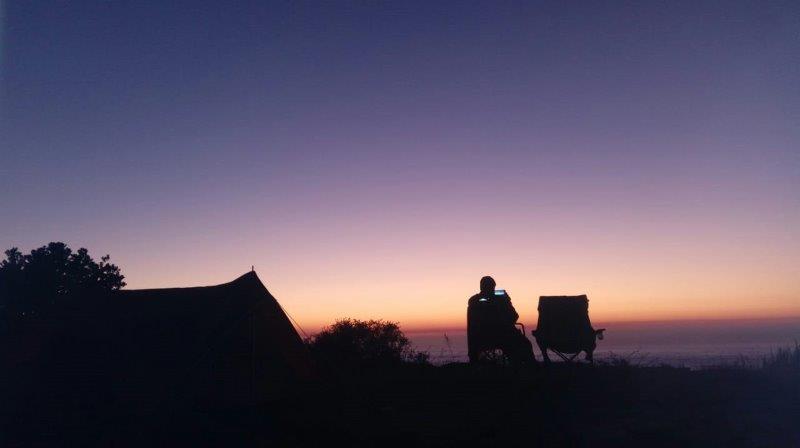
Wild Swim fundraising update
Roving Reporters’ Wild Swim expedition has so far raised R41 731, half of which is to be awarded to Sustaining the Wild Coast and Africa!Ignite for upgrading home-stays along the 22km eco-tourism route in the Pondoland MPA. The balance is to cover costs of enrolling young environmental scientists and marine biologists on Wild Coast trails and Roving Reporters boot camps.
“With the support of Kydrin Foundation and various other fundraising partners, we still hope to reach our collective target of R250 000 by the end of July,” said Stan Kozlowski, convenor of the Wild Swim and chairman of the 8 Mile Club.
Donate here to help us reach this target
Up coming events include Wild Friend swims in East London, Durban and Cape Town and associated fundraising presentations.
Follow Roving Reporters Facebook page for further updates.

